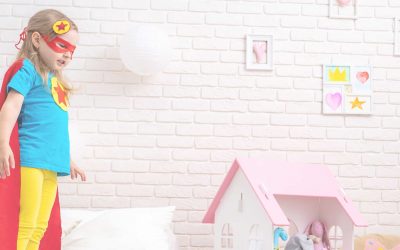Consider a New Way of Resolving Conflict
Recently, I came across new research on conflict resolution strategies that made me question some of my methods of managing behaviors’ as a mother to my children. For example, I typically gave my children three chances in the past, and then they’re out when they misbehave.
But since my husband and I started getting firmer with our boys, they have become more compliant and more likely to listen the first time they are asked to tidy up or do something else.
Resolving Conflict – Choose Your Battles
There are times that I still give them two or three chances. This is partly because I hate to have conflict and because I want to choose my power struggles with the kids.
I ask myself, is it worth it? Who is going to be more upset, them or me? These questions allow me to choose my power struggles wisely; the last thing I want is to have numerous power struggles throughout the day.
New Thinking About Resolving Conflict with Your Kids
For parents, the new framework for resolving conflict is to be more supportive and positive with children. As a result, they are viewed as competent, capable, and confident learners, and I could not agree more. Part of this framework is essential in encouraging kids to think for themselves and say in their lives.
I believe kids should be viewed as innovative learners and involved in their development and managing conflict. This new philosophy of positive conflict resolution with kids means that kids have decision-making power and are treated as individuals in disagreements. Of course, the adult still has the final say, but the child can express their feelings and reasonings for wanting to disobey a caregiver.

However, when it comes to managing children’s behavior – do parents need to be 100% positive? Based on my many years as a pediatrician, I think we have to have a balance. Often, we should guide children through the situations and facilitate how to solve the problem. However, there are other times when I believe that a time out or being sent to your room is warranted.
Some things aren’t negotiable. For example, if my boys are aggressive, they are sent for a time-out. I feel that this situation needs to deliver a strong message that I do not tolerate violence of any kind. Hence, managing conflict looks a little different in these instances.
At school and daycare, teachers and daycare providers are not allowed to use these conflict resolution strategies. I understand why they are not allowed. However, this poses a question of how you deliver a message to the child that this is very wrong, it hurts, and can have significant consequences, especially with a preschool-age child.
For Now, We Follow Our Gut & The Rules
For now, I will continue to do what I feel is suitable as a parent and as a physician.
Making a plan of strategies for dealing with conflict with your kids and helping kids solve conflict is vital in building problem-solving skills in your children. In addition, they will take notice of how you decide to handle conflict with them and with other people.
Five (5) Conflict Resolution Strategies to Consider
- Reduce the stress of conflict with your children by encouraging them to calm down through any words for them. After this, it will be much easier to have a productive conversation with your child.
- Set a good example of conflict resolution skills for your kids. These skills will be essential to learn as they start to build friendships. Model empathy, coping, and brainstorming solutions.
- Listen to your child when they are upset with what is being asked of them. Repeat back your interpretation of what they feel. This teaches them empathy and also shows that their voice is being heard. This will help them speak up in the future to other people.
- Teach your kids to brainstorm solutions to problems they are having. Sometimes, it’s better not to step in instantly to solve a problem for your child. Eventually, they will be on their own.
- Give choices to help children feel in control. For example, if you need them to clean their toys, ask them what toy they want to put away first.
The most important thing is to create a positive environment to the extent that you feel is appropriate. In general, your child should feel comfortable expressing themselves without fearing an overly adverse reaction.
Conflict Resolution Strategy
Don’t ignore conflict. Acknowledge it and talk it out. Talking is the best way to get to the root of the problem.
Clarify what the issue is, calmly ask, and figure out what is going on.
Bring involved parties together to talk and identify a solution that both sides can agree on before monitoring or following up with additional steps as needed. This can help prevent the issue from becoming an even bigger problem in future interactions. Consider brainstorming ideas for solutions like having more meetings and getting feedback from other people who have gone through this in the past.
Resolve Conflict
Your priority should be maintaining and strengthening the relationship with your child, not winning an argument.
You aim to keep communication lines open so that you can resolve conflict in a productive manner; this will help maintain harmony between parent/child relationships too!
Effective Conflict Resolution Strategies
It can be hard to find the perfect balance between parenting and teaching your child how to conduct themselves.
You want them to listen but also have a voice when something needs attention. As parents, it often feels like an impossible task because we always try our best while still learning new things all the time.
When both parties work together: listening carefully for what someone else says; identifying specific points in disagreements (so there aren’t any); and expressing one’s own needs clearly without blame–will help immeasurably toward finding solutions that will last into adulthood.
FAQs – Frequently Asked Questions
What is a good workplace conflict solution?
Great workplace solutions and conflict resolution starts with a conversation and body language. In workplace conflict, the parties involved need to listen and find out precisely the appropriate resolution and how to get there. Exactly what does each party feel, and how can they best express that? What does the other person feel, and how can they deal with handling conflict in the future?
Consider what they have said and summarize a point of agreement. Then, make sure you share your ideas with the opposing party.
What are conflict management skills?
Conflict management is the practice of identifying and handling conflicts sensibly, reasonably, or efficiently. Since some conflict in a business is inevitable, people must understand how to resolve these issues when they arise to avoid creating any additional problems.
Is constructive conversation helpful in conflict resolution?
When dealing with a conflict, you must communicate in an informative way. Communication can be difficult when both parties are emotional and upset- but this is where constructive communication comes into play.
Use words like “because,” or try saying how your opponent made you feel instead of just telling them what happened so they know why things occurred the way they did without blaming anyone else. It may seem hard at first because people often don’t think before speaking out loud (or typing), but eventually, after practicing more and more, you will be able to talk through your emotions instead of getting upset.
What is an excellent way to diffuse any situation?
When you respond calmly with empathy and active listening, it’s much easier to stay in control of the situation, and you are more likely to achieve conflict resolution. When we are courteous while dealing with difficult people or situations, this can defuse any potential conflict with the other party involved.
#YouGotThis

Dina is a wife, mother of 4, and adrenaline junky. She loves to share children’s health information from her professional and personal experience. More About Dr Dina.












